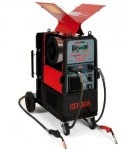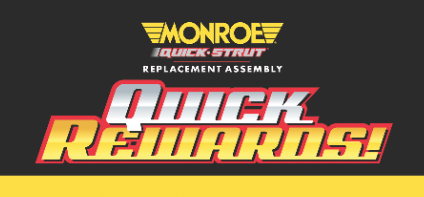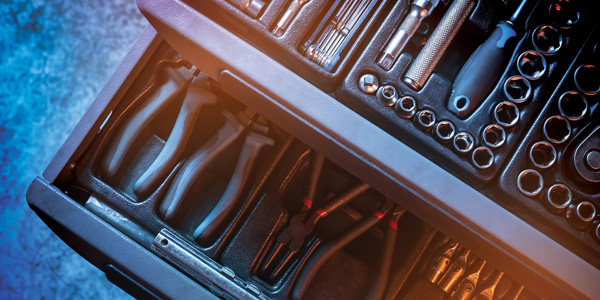Whether the “selling” part of the job at your shop is handled by a designated service adviser, service manager, shop foreman or technician, the impacts of a “yes” or “no” are the same. People may decline repairs for numerous reasons. Some you can’t control, but some you just may. Here are a few things that I’ve noticed that I feel increase the odds of having a successful sale.
1. Be Confident and Convinced
A technician tells you (the service manager) that a vehicle should receive a certain new part or a maintenance service that you may not fully understand all the details as to why. Do you rush over to price it up and sell it? How can you be convincing to the customer if you aren’t completely convinced yourself of the need? I’m not talking about distrusting your employee, but if you don’t fully know why something needs to be done to a vehicle, then you won’t sound convincing when explaining the importance of performing the service to your customer.
In a diplomatic manner, find out from the tech not only why an issue should be addressed, but also to what benefit to the customer performing that service may be. If the concern involves something visual, like cracks in a belt, then go look at it. “Oh yes, I saw it myself, that belt is cracked almost completely through and ready to pop any day now.” Now you will sound confident and convinced.
2. Don’t Itemize Your Estimate To Death
I heard this more times than I can count: “It’s time for a new fuel filter…that’s $XX.XX for the part and $XX.XX for the labor to install it, and you also need a new water pump…that’s $XX.XX for the part and $XXX.XX to install it”…and on and on like that.
In this situation, there is more than one reason why the customer would be completely baffled as to what the final price will be. You’ve hit them so many times with this number and that number to the point where they’re lost and just ready to get out.
Unless your state has some kind of law that says you must itemize estimates to this degree, then don’t. You might think you’re just thoroughly explaining to your customer where their money is going, but in reality, all you’re doing is changing the one thing the customer truly understands about their car: how much it’ll cost to fix it. Why subject a customer to the agony of letting them watch their bill creep up at different increments, step by step by step? You’re raising the bill and haven’t even worked on it yet! Just add all parts, labor, any shop supplies and taxes together for all services combined into one single price. Start by explaining each recommended service to the customer and the benefits to each. Then, when you’re done, give them the total “check writing” price.
A few customers may want you to itemize after hearing the total, so be ready to cooperate. Others may select one or two items to not do at that time, so have your calculator in your shirt pocket ready to pull out and quickly subtract that pretax priced item from the post-tax quote for a new estimate.
3. Use a Check List
Most shops have them, but do you use your check list during the sale? Most check lists I’ve seen are set up with a list of items on the car with pass or fail boxes to check. Let’s say a vehicle only has one thing that can be found that needs attention. For the sake of discussion, let’s say it’s the belt and it’s located half way down a check list of other items that pass
inspection. Completely fill out the check list, including the one item as failed. Then, when you approach the customer to sell the item, have the check list in hand and visible to the customer.
Most customers can’t look at a car to determine its condition, that’s why they bring it to you. But, they can look down a “report card” and see that their car is getting all “A’s” in every subject except for that one. That check list told that customer that their car is an otherwise good car and that the only thing wrong is it needs a belt. That may make some people feel that the car is a good candidate for such an investment…without you having to say all of that.
You can enhance this by casually referencing the check list. Simply hold it out as you mention the item, and drag your index finger down past all of the passing check marks stopping at the one failing one. Usually what will happen is the customer’s eyes will follow your finger down the page. They will see each inspection result leading up to that one bad one.
Be sure to finish your sales approach with “and we can do that today” (assuming it can be done that same day). If they decline the service, hand over their copy of the check list and leave them with a smile and invitation to return when it is most convenient to them to have the service. A certain percentage of those customers will change their mind and come to you in a minute or two to tell you to “go ahead and fix it.” Some may let that check list — that they can now touch and look at in solitude — sway their decision. Others may start to think about your last words to them of coming back “when it is convenient.” The customer may decide that there is no time more convenient than now to get it done.
But if the customer declines the service at this time, then be sure to staple their copy of the check list to the final paid invoice. Many people will toss their paid invoice into the glove box. One day, months later, they will find that invoice in the glove box with a big-old reminder attached to it.
4. Talk About the Car in Front of the Car
It’s funny when you think about it, but I swear it helps. If your shop is set up to allow this, bring your customer from the lobby out to the vehicle to talk. Many people give inanimate objects human qualities, and one of the all-time favorites to do this to is their automobile. Ever heard a customer say that “she’s not been feeling well lately” in reference to their car?
Some people even name their car. I had a friend in high school who named her upper ’80s Honda Accord “Scooter.” She’d talk about “Scooter” as if it were a person. I had even rode with her in “Scooter” and had seen her pet and pat the dash of “Scooter” and say things like “that’s a good boy” after winding that little 4-cylinder out to get around someone in traffic. That type of person is a prime candidate to speak with in front of the car when presenting your sale. Those people are hesitant to say “no” where their car can “hear” them.
You may wonder how tightly these people’s grip is on reality so as to look at a machine and assign it human traits, but it’s a very popular thing to do and I’m willing to bet that most of you reading this article have done that very thing. If you own a boat, then you’re almost certain to have done it. The only real issue here is how deeply one person may do it. Deeply enough to say “yes” if it means healing their sick “friend” or keep from hurting it’s “feelings.”
5. Find a Quiet Phone
Stop trying to call customers from a phone inside the shop. You need for a sale to go orderly and professionally. Does the doctor call you into the operating room to discuss what’s wrong with you and how much it will cost to fix you up? No. He does it in a quiet office.
Whoa…wait a minute! This sounds like it’s in direct contradiction to #4 about talking to someone in front of the car. Make up my mind, right? No, I’m not confused here. Talking to someone on the phone is a different situation than talking to him or her in person. When a person is there in your shop, a little bit of shop noise is to be expected and just goes along with the experience. But over the phone, there’s a new set of rules. You have to remember that they’re not in a shop when you’re talking to them. They’re in their home, office or out shopping somewhere.
When you call them, you’re an allowed intrusion into their environment. That’s right, you are an intruder. You’re a tolerated disruption to their work or private time for the sole purpose of telling them what is wrong with one of their largest possessions and how much it will cost them to have it fixed. Your voice is invited into their space, but you must leave your baggage at the airport. The sounds of that impact wrench, air ratchet, car’s starter repeatedly engaging on that no-start diagnosis, or that guy in the shop who sings along to the radio out of key are nothing more than an unwelcome nuisance intruding into their space. Not to mention that sometimes a phone will amplify those sounds and the customer may not be able to hear you at all. So, find a quiet phone where they can hear you and you can hear them. Most importantly, you won’t annoy them.
I hope you’ve enjoyed these tips and I hope you hear more and more yeses in your shop.








